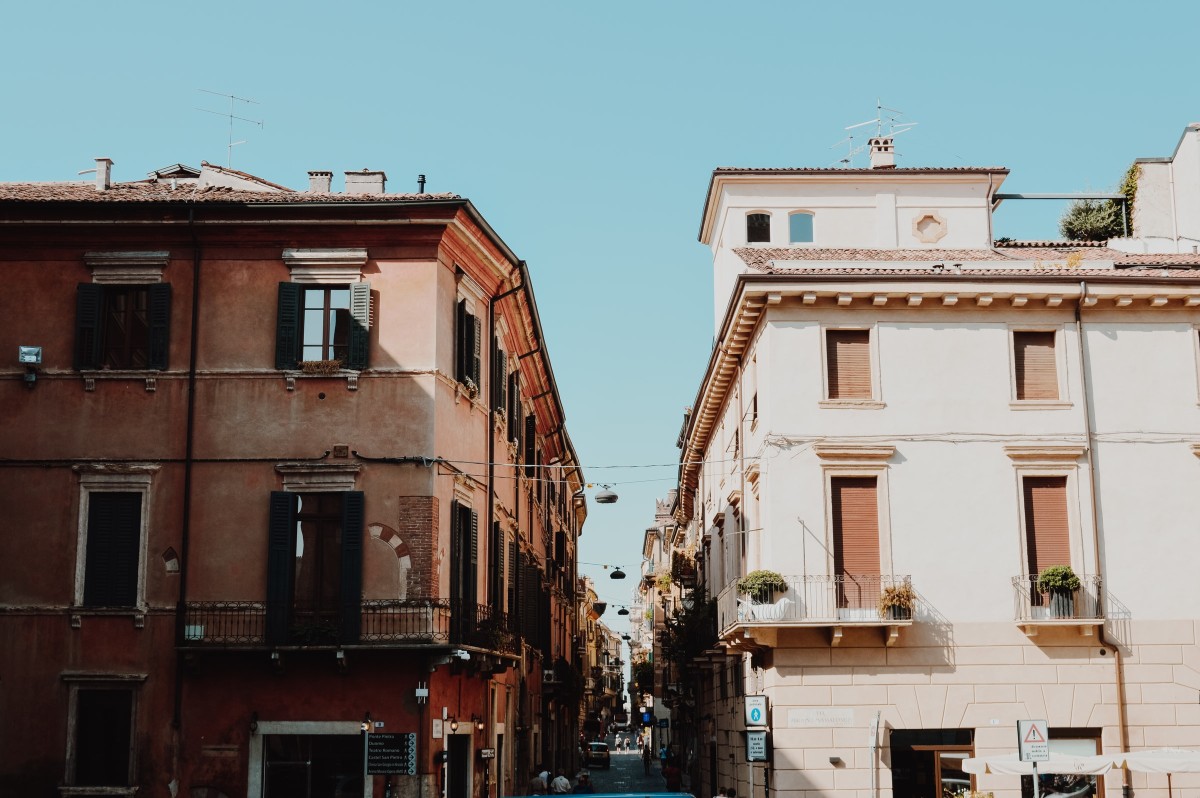
Renting property is different everywhere you go, and if you’ve never rented an apartment in Italy before, then you could be in for some surprises as the process can be quite different to other European countries and also varies from region to region. Whether you’re planning on staying in the country for a short time, or looking for a long-term rental in Italy, here at idealista we are here to help with a general guide to renting in Italy for the first time.
Many people will have an idyllic Italian apartment image in their head, waking up in the morning and stepping out onto a charming terrace which has pretty views of the town. While this is very possible, we want to give you some tips and things to keep in mind when it comes to renting an apartment in Italy so you don’t get any nasty surprises, and so that your Italian dream doesn’t turn into a disaster!
How much does renting in Italy cost?
Let’s begin by talking about prices. This will vary depending on what you’re looking for and where you’re planning to rent, as well as the number of bedrooms or if you’re planning to share a flat. It is highly possible to rent in an Italian city for an average of around 600 euros per month but remember that very often, you get what you pay for. If a property seems cheap and too good to be true, then it probably is. Keep in mind that by searching for a property a little outside the city centre can also make a big difference to the price, and that negotiating the price is very common and acceptable in Italy.
Regarding deposits for rental properties, it is common for Italian landlords to ask for a 1-month deposit plus the first month’s rent, but don’t be surprised if you are even asked for an initial deposit of 2 or 3 months. Keep in mind that if you are using a real estate agency, you’ll also have to set aside the fees for that.
Beware of old buildings
Beautiful architecture, colourful buildings, cute metal balconies, the list goes on. However, as charming and beautiful as old Italian buildings are, renting an apartment in an old building can be problematic. Unless they have been renovated, then you’re quite likely to find damp, old pipes and plumbing, dodgy electrics, old windows (which may let the cold or lots of noise into these apartments) and no lifts. This isn’t always the case but some of these elements are not always obvious when viewing a property, so make sure to do your research and ask the right questions.
Furnished or unfurnished?
When renting an apartment in Italy, often you’ll see apartments advertised as furnished (arredato) and unfurnished (non arredato). The most important point here is that when you see an apartment advertised as “unfurnished”, this effectively means that it is an empty shell. In many cases, there will be no kitchen (neither appliances nor units, it might not even have a sink) and often there will be no light fittings. You’re likely to only find the bathroom intact and little else.
Consider using an agency
When renting property Italy, you can do so directly from a private owner, or seek the help of a real estate agency. Despite the temptation to save on commissions and fees, being assisted by a real estate agent when renting property in Italy has countless advantages and is not to be underestimated, especially if you're an expat planning to move to Italy and don’t speak much Italian. An agent will be able to guide you through the process, help you with paperwork and do things by the book, something which isn’t always the case with private landlords.
Rental contracts
If you’re renting from a private owner in particular, it's very common that they won’t offer you a contract, simply just some sort of arrangement where you'll probably be asked to pay in cash. Stay well clear of this. While this type of arrangement is relatively common in Italy, as an expat, it’s even more important to have an official rental contract so that you don’t run into problems further down the road. Rental contracts are needed to apply for residency and other formalities, so it’s best not to cut corners.
Utilities will be in your name
Paying utilities, such as gas, electricity, or water, is something that again varies across Italy but in the majority of cases in Italy, utility bills must be in your name and will be sent directly to you. While it is common in other countries to pay these household expenses to the landlord, this is not the case in Italy. In 9 out of 10 cases, you will be responsible for changing the account details and this can take time, so it’s a good idea to do it before you move in to avoid issues.
Be prepared to clean
Finally, when you rent an apartment in Italy, do not expect it to be sparkling clean when you move in, so be prepared to give it a deep clean. This is not always the case, but it’s also not uncommon to find apartments that seem like they haven’t been cleaned in a long time, which thick layers of dust and dirt, stains on the floors and walls and other horror stories. Along the same lines, a landlord cannot reduce your deposit when you leave the apartment in the condition in which it was found.
- Check out these 10 mistakes that first time renters often make in Italy
- Find long-term rentals in Italy
- Find shared flats in Italy